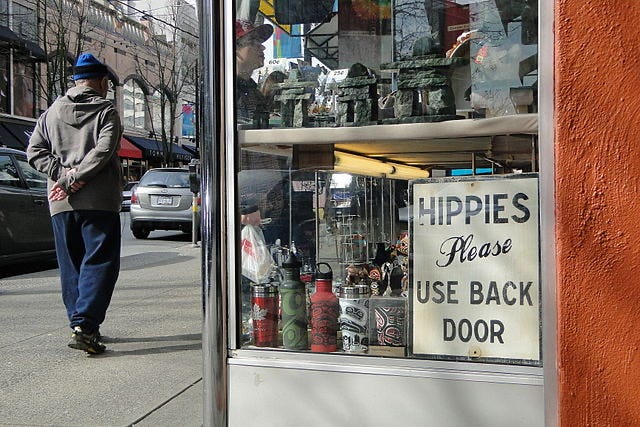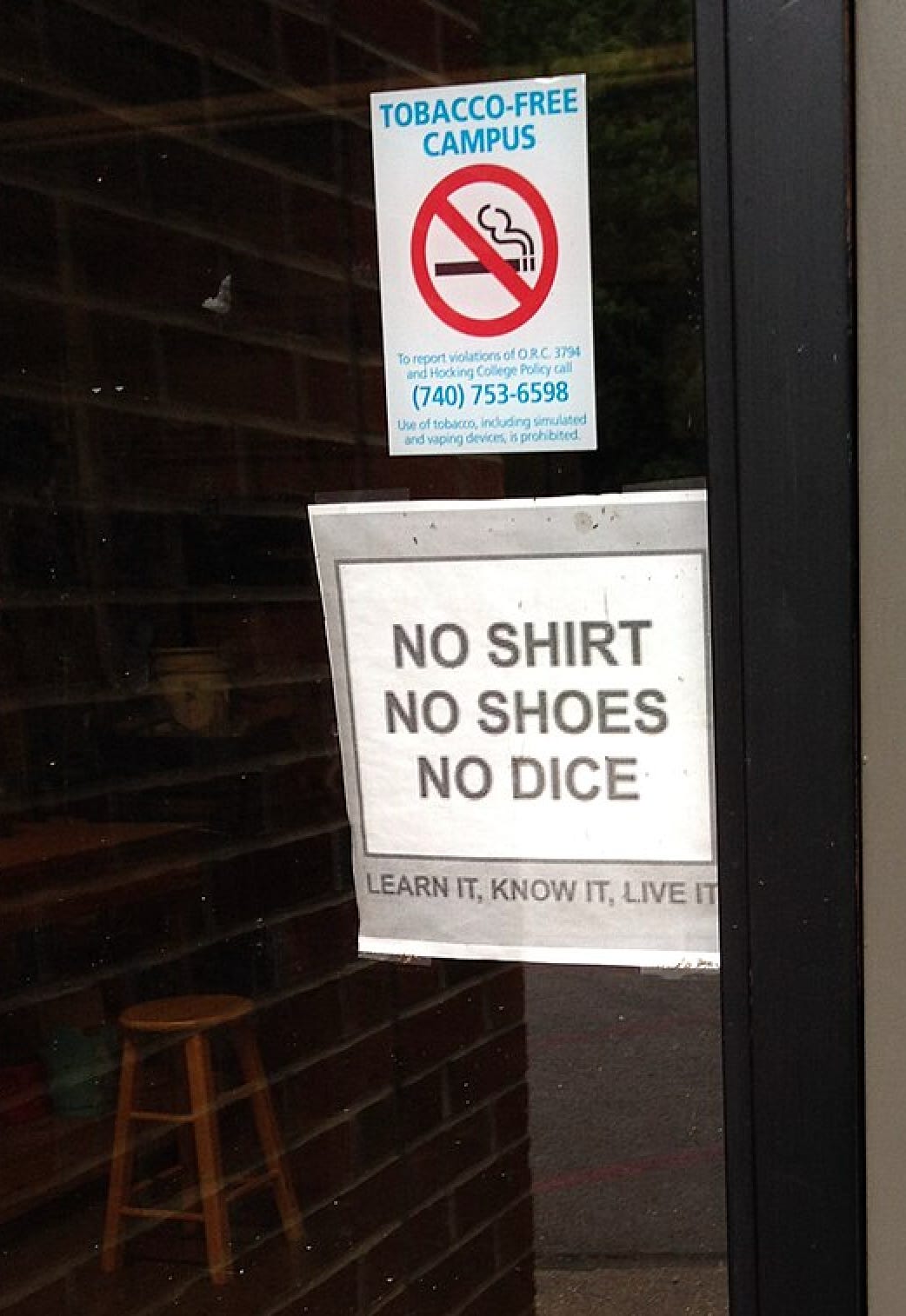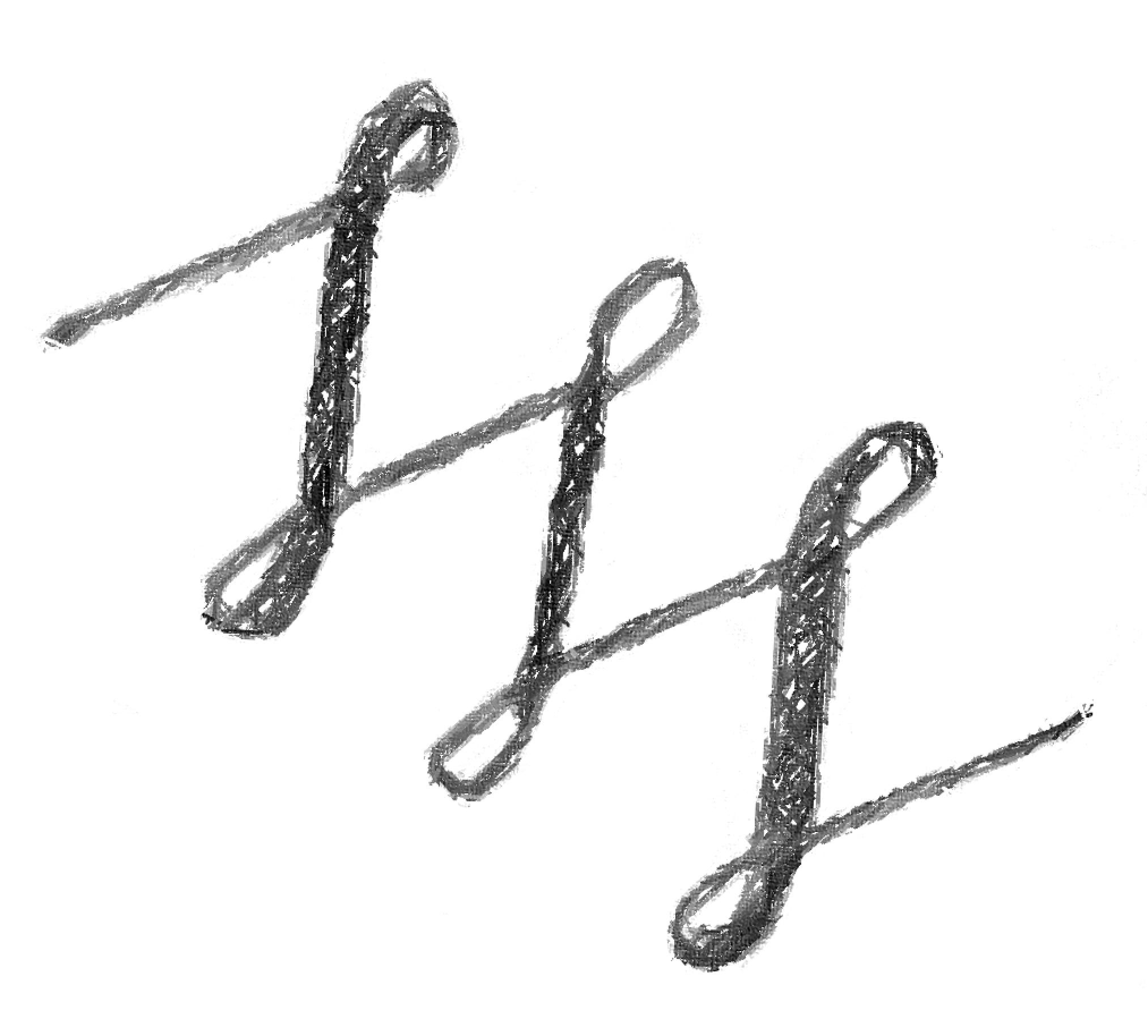Welcome to new subscribers and regular readers! Thank you for joining me for today’s song, “Signs” by the Canadian group, Five Man Electrical Band (1970). If you’d like to hear the song before you read about it, I’ve included a YouTube video below the article. For Japanese students, vocabulary words in bold are provided in Japanese below. TOEIC (PBT) 450+, Eiken 2, CEFR B1.
(680 words)
The year 1970 was an important time in American history. American society and culture were changing in important ways. People were still feeling the effects of the 1960s, and many of the same issues continued into the new decade.
One issue in 1970 was the ongoing fight for civil rights. Laws like the Civil Rights Act of 1964 and the Voting Rights Act of 1965 had been passed, but many people still faced unfair treatment, and many still do today. Activists kept working hard for equal rights for African Americans, women, and other groups.
The Vietnam War was another issue that affected people all over the U.S. People against the war held protests. A lot of young people felt upset and doubtful about the future, mainly because of the direction of the war.
Even though there was a lot of tension, 1970 was also a time of creativity. Music, fashion, and art were changing in exciting ways. Rock bands like The Beatles and Led Zeppelin were very popular. In fashion, young people loved bell bottom pants, platform shoes, and tie-dyed clothes. Many young men, in particular, chose to wear their hair long because they felt it expressed their disagreement with conformity. People who dressed this way were sometimes called “freaks” or “not normal”. Older people preferred more traditional styles and thought that short hair and a suit and tie showed a young man was “upstanding”, or respectable in society. This often led to conflicts within families.

In this song from 1970, the singer is looking at a sign in the window of a business. The sign says there is a job available. He puts his long hair under his hat. The business owner thinks he might choose this young man (you’ll do) until the man takes off his hat, showing his long hair.
And the sign said "Long-haired freaky people
Need not apply"
So I tucked my hair up under my hat
And I went in to ask him why
He said, "You look like a fine upstanding young man
I think you'll do"
So I took off my hat, I said "Imagine that!
Me workin' for you!"
Sign, sign, everywhere a sign
Blocking out the scenery
Breaking my mind
Do this, don't do that
Can't you read the sign?
The young man is walking along a road in the countryside. He sees a sign that says he is not allowed to enter a field or area that belongs to someone else.
And the sign said anybody caught trespassing
Would be shot on sight
So I jumped on the fence and I yelled at the house
"Hey! What gives you the right?
To put up a fence to keep me out
Or to keep Mother Nature in
If God was here he'd tell you to your face
“Man, you're some kind of sinner"
The young man then goes into a restaurant, but he’s not wearing a shirt and tie. There is a sign that tells him he is not welcome.
Now, hey you, mister, can't you read?
You've got to have a shirt and tie to get a seat
You can't even watch, no, you can't eat
You ain't supposed to be here
The sign said you got to have a membership card to get inside
Then he finds a building that says everyone is welcome, so he goes inside.
And the sign said, "Everybody welcome. Come in, kneel down and pray"
But when they passed around the plate at the end of it all, I didn't have a penny to pay
So I got me a pen and a paper, and I made up my own little sign
I said, "Thank you, Lord, for thinkin' 'bout me. I'm alive and doin' fine."
The song demonstrates an important way of thinking among many young people in the 1960s. A person’s value is not based on what they wear, the color of their skin, who they love, or how many yachts they own. They believed that the value of a person is what is inside them and how they treat others.
Question
Where do signs block out the scenery in your area or country?
How is conformity sometimes not so good for society?
Let’s discuss it in the comments!
Vocabulary
decade 10年
ongoing 継続中
tension 緊張
disagreement 不一致
conformity 順応
traditional 伝統的
upstanding, respectable 立派な
trespassing 不法侵入
yell 叫ぶ
sinner 罪人
I believe that education should be free.
All of the articles about the songs will remain free for students to use. (We are all students, are we not?) However, if you find these articles useful and are in a position to make a small (or large) donation, I would be deeply grateful.
buymeacoffee.com/socialissuesinsong
Would you like to see my cats? I post regularly about them on Notes in the app.
#protestsongs #protestmusic #socialissues
英検2級以上 | 名曲で英語を学ぶ










A reader sent me a message asking for more details about the phrase, "No shirt, no shoes, no dice." "No dice" is a phrase people sometimes use to refuse a request or to say there's no chance that something will happen. In this case, if you aren't wearing a shirt and shoes (think of being at the beach, for example), then you can't go into the store, restaurant, etc., i.e. no dice!
I always loved this song and clearly remember when it was released. Thank you for the memory!